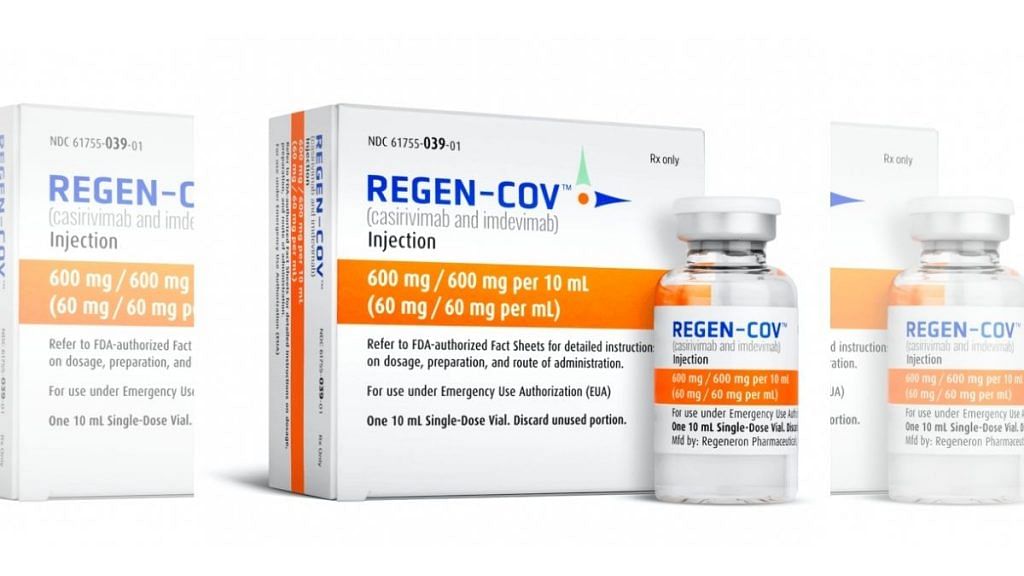New Delhi: REGEN-COV — a cocktail of two antibodies that was administered to former US president Donald Trump when he was infected with SARS-CoV-2 — can help prevent high-risk patients from being hospitalised with Covid-19, a new study has found.
The research, published in Lancet’s EClinicalMedicine journal, looked at 1,400 patients infected with Covid. Of these, 696 received the drug combo between December 2020 and early April while the others did not receive it.
REGEN-COV is developed by US-based biotechnology company Regeneron Pharmaceuticals. The drug was given emergency use authorisation by the US Food and Drug Administration (FDA) in November last year.
The drug is meant for use in mild-to-moderate Covid patients who are not on oxygen support but who may be at risk of severe disease.
In the new study, researchers at the Mayo Clinic — a non-profit American medical centre — evaluated patients 14, 21 and 28 days after treatment. The team found that the numbers for hospitalisation were significantly lower in the treated group.
After 14 days, 1.3 per cent of the treated group was hospitalised, compared to 3.3 per cent of those who had not been treated.
After 21 days, only 1.3 per cent of those who were treated were in hospital, compared to 4.2 per cent of those who had not been treated.
At the end of 28 days, 1.6 per cent of those treated were hospitalised while 4.8 per cent of those who had not been treated were in hospital.
Consequently, the study noted a 60 to 70 per cent relative reduction in hospitalisation among treated patients. Of those who were subsequently hospitalised, the rates of ICU admission and mortality were low.
The phase 3 clinical trials of REGEN-COV had also found that the risk of Covid-19 hospitalisations and deaths reduced by 70 per cent in people with mild-to-moderate symptoms.
“Once again, this real-world study suggests that when patients who are at high risk due to a range of comorbidities contract a mild or moderate case of Covid-19, this combination of monoclonal injections gives them a chance of a non-hospitalized recovery. In other words, they recover safely at home,” said Raymund Razonable, an infectious diseases specialist at Mayo Clinic and senior author of the study, in a statement.
Also read: At 16.4 cr doses, SII’s increased Covishield output helps India cross Aug vaccination target
Monoclonal antibodies
REGEN-COV is a combination of casirivimab and imdevimab — two monoclonal antibody treatments, which have been granted emergency use authorisation by the US Food and Drug Administration.
Monoclonal antibodies are artificially created antibodies that aim to aid the body’s natural immune system. They target a specific antigen — a protein from the pathogen that induces immune response.
These antibodies can be created in the lab by exposing white blood cells to a particular antigen. In the case of Covid-19, scientists usually work with the spike protein of the SARS-CoV-2 virus, which facilitates the entry of the virus into the host cell.
To increase the quantity of antibodies produced, a single white blood cell is cloned, which is used to create identical copies of the antibodies.
“Our conclusion overall at this point is that monoclonal antibodies are an important option in treatment to reduce the impact of Covid-19 in high-risk patients,” Razonable said.
(Edited by Rachel John)
Also read: Risk of hospitalisation doubles with Delta variant compared to Alpha, study in Lancet says
